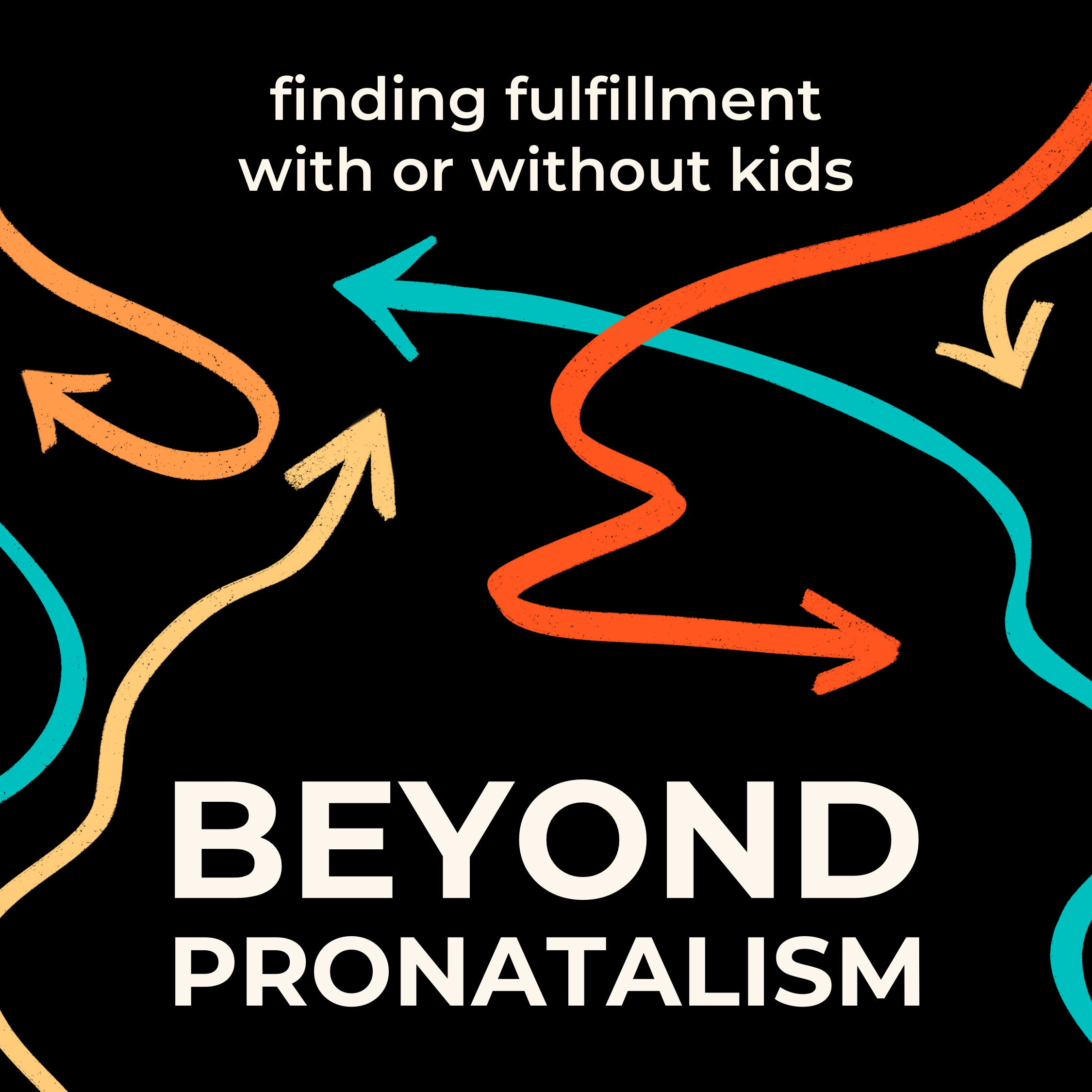Are There Too Many of Us?
A recent report on Deutsche Welle’s Eco India environmental news magazine recently asked, “Are There Too Many of Us on Our Planet?” The report mysteriously arrived at the conclusion that, “It’s not the population element that’s going to be the problem.” Reporter Aditi Rajagopal advised our attention should be redirected to, “the more hidden and dangerous concerns of waste and overconsumption.” We applaud Rajagopal for covering this topic, but we’re compelled to go through her report and correct an array of instances of faulty logic. At the top of our list: the mistaken notion that there is a contest between overpopulation and overconsumption for biggest worry. We invite her to join us on a future episode if she’d like to discuss this with us. We need journalists to be up to speed on the human overpopulation issue.
MENTIONED IN THIS EPISODE
-
Dave Gardner 0:00
Before we jump into this episode, I need to draw your attention to an important fact of life: this podcast and all the vital work we're doing it world population balance this possible only because you care enough to contribute support as you make your year end giving decisions. Please remember World Population Balance. Your charitable gifts to this critical nonprofit project is truly a gift to all the children and grandchildren of the world.
Anna Walnycki 0:27
And people get this perception that you know, these cities are overcrowded, and they're really busy. Well, actually, what's happened is that planners haven't really taken into account that population growth is gonna happen anyway. And then there's a second point, which is actually the kind of the bigger impacts on the environment are linked to consumption.
Dave Gardner 0:47
Whoa, whoa, whoa, not so fast. We have a few bones to pick with those statements from Anna Walnycki of the International Institute for Environment and Development UK. And the news report that included that soundbite. Population growth isn't going to happen anyway. Every prospective mother has some agency in determining that and we aren't having a contest over which has the biggest impact - consumption or the number of consumers. If you understand math, you know, there is no contest. All that next on the Overpopulation Podcast. Welcome to the Overpopulation Podcast, the podcast that dares to stand up for the right of future generations to live in a world worth inheriting. I'm your co-host, Dave Gardner, Executive Director of World Population Balance. Erika isn't available for this episode. So we've invited a special new guest co-host, Nandita Bajaj to join us. Nandita, thanks for coming on.
Nandita Bajaj 1:50
Thank you, Dave. It's a pleasure to be on.
Dave Gardner 1:52
Why you tell our listeners just a little bit about yourself.
Nandita Bajaj 1:55
Sure. So my name is Nandita Bajaj and I live in Toronto, Canada with my husband, Mike and my dog Sophie. I was actually born and raised in India and moved to Canada in my late teens. I've been an environmental advocate for my entire adult life. And I'm especially interested in the overpopulation crisis. I worked in the field of engineering for several years before becoming a secondary school educator, which was around eleven years ago, and I'm currently on a sabbatical pursuing my graduate degree in humane education through Antioch University in partnership with the Institute for Humane Education. And for my thesis, I'm actually developing a graduate level course on overpopulation from a humane education framework, which involves the intersectionality between environmental ethics, animal protection, human rights, as well as cultural change.
Dave Gardner 2:49
Well, it sounds like we could probably do twelve episodes just interviewing you. So we'll have a lot to talk about in the future if you decide you like this experience and want to come back.
Nandita Bajaj 2:57
Thank you for having me.
Dave Gardner 2:58
So in today's episode, we want to talk a little bit about a news report that we found on the internet published recently called Are There Too Many of Us on Our Planet? And it came as a part of Eco India, the environment magazine on the Deutsche Welle website, Made for minds. And Deutsche Welle is a taxpayer supported public TV network in Germany. I hope I'm pronouncing that halfway correctly, my German is nowhere close to exceptional. And the reporter-
Nandita Bajaj 3:27
The reporter's name is Aditi Rajagopal.
Dave Gardner 3:30
A young lady, and we want to thank her for putting together a report about human overpopulation. The description that Eco India put together for this video is this, "The global population is growing. And every one of us needs food, shelter, water and air. But we also want a lot of other things. And just how much can our planet bear? Which is more harmful to the environment, overpopulation or overconsumption?" Well, we want to correct a few misstatements. First of all, we want to thank her for covering this subject. But secondly, we do want to correct some misstatements in this video. All too often, a news report like this is put out there and people just assume that it's completely factual. And in this case, we're gonna take some exceptions to that. On the site where I originally found this, which was MSN's website, the description that they wrote, really gives away the conclusion that she draws in this report. That description is, "The world's population is nearing eight billion, but do we have really an overpopulation problem? Human beings are the biggest threat to the environment, but not because their numbers are increasing. The real problem is overconsumption." You know, there's no suspense there. That is exactly where this reporter takes us. And we'll eventually get to that but every step of the way, we want to make a few comments about this report just to set the record straight. Fair enough?
Nandita Bajaj 4:52
Sounds great.
Dave Gardner 4:53
Well, let's let's go to sound bite number one.
Aditi Rajagopal 4:57
Some countries began experimenting with morally and politically dubious methods of population control. China became the poster child, and its one-child policy resulted in a disastrous gender imbalance.
Dave Gardner 5:11
Nandita, you wanted to say a few words about that particular statement I think?
Nandita Bajaj 5:15
So I think I actually find it quite common with a lot of population denial rhetoric. China's one-child policy is seen as the poster child in population stabilization efforts. And as the reporter mentioned, however, what's unfortunate is there are several incredible examples of countries that have managed to stabilize their populations through humane, noncoercive, and empowering approaches that are often left out of the conversation.
Dave Gardner 5:45
Absolutely.
Nandita Bajaj 5:46
And there are some great examples like Iran, Thailand, Costa Rica. All of them, within decades, have managed to bring down their country's total fertility rate from about six children per woman to less than two.
Dave Gardner 6:00
Yeah, good point. Yeah, you brought up that there's this kind of, you called it a poster child, it's kind of like this obligatory reference to China's one-child policy that almost every journalist feels like they've got to put in a story when they cover this subject. And in so many ways, it's old news. Now, we certainly don't want to ever forget that this mistake was made. There were a number of mistakes about that policy and it turns out that, as you mentioned, there's better ways. We don't have to have oppressive government action dictating family size in order to do something about overpopulation. So it is a shame, especially that she feels like she's got to start the story with that.
Nandita Bajaj 6:41
Right.
Dave Gardner 6:41
But if we need to be reminded, well, we need to be reminded. But it's just important to note that that doesn't mean that any modern effort today to address overpopulation has the problems that that effort had, as you mentioned, plenty of very humane, voluntary, ethical policy approaches.
Nandita Bajaj 6:59
Yes, exactly. And on the topic of coercion, I would even argue that our current pronatalist policies and beliefs are forcing women to have children they don't necessarily want. Around the world, especially in low and middle income countries, there are over two hundred million women who don't have access to contraception or family planning advice, whether it's because of their country's policies, because it's a cultural norm, or whatever it is, it's women feeling forced to have children they don't necessarily want. And I would argue that that plays into the same coercive policies that the reporter is trying to-
Dave Gardner 7:43
Disparage or criticize, or remind us of, or?
Nandita Bajaj 7:46
Yeah, I think that's good.
Dave Gardner 7:48
I'm so glad that you brought this up in this connection, because I'd never had thought about it that way, that there's so many anti-choice efforts out there. And those could be interpreted as coercion on their own. I never would have thought about that as coercion. Partly, that's because I'm a guy. And most women probably have reached that conclusion about that intrusion into their reproductive freedom.
Nandita Bajaj 8:11
Right.
Dave Gardner 8:12
Yeah, very interesting. Aditi, I do want to give you high marks for using the word overpopulation. Very seldom do journalists use that word. Usually they want to talk about population growth. I don't know why, they're afraid that overpopulation implies some kind of judgment that they don't want to be making. So I for one am glad to see that word in use in this way, and not just applied to deer or rats, or bats or wolves or something else, some other species. So congratulations, kudos for that. Alright, shall we move on to the next clip?
Nandita Bajaj 8:46
Sounds good.
Aditi Rajagopal 8:47
But demographers have consistently got it wrong.
Paul Hawken 8:50
The early calculations yes, only four billion is the carrying capacity of Earth. But today, we are almost feeding more than seven billion population because we have supplemented our natural resources with the technological resources and be able to produce the resources to sustain the population.
Dave Gardner 9:12
One problem right from the get go I have with this is that it gives us the false impression that technology has genuinely, genuinely kept us from violating carrying capacity limits. The speaker correctly tells us that we've used technology has enabled us to feed more than four billion people on the planet. That is true. But what's really been happening is we've been kind of like stretching a rubber band, we've been exceeding the carrying capacity, thanks to technology and that is not a permanent condition because the technology is faulty. The technology has so many downsides and what are we talking about? Well primarily, we're talking about the Green Revolution. Mechanized agriculture, very fossil fuel dependent, artificial fertilizer, all of that way of producing enough food to almost feed eight billion people on the planet has a lot of downside. Ocean deadzones from agricultural runoff, depletion of fossil fuels, which is a finite resource, we're really basically desertifying our good agricultural land. We're sterilizing the soil the way we are currently producing, mass producing so much food.
Nandita Bajaj 10:22
Definitely. And the other concern I have about the video, and I find it's typical of many overpopulation deniers is that it's done from an anthropocentric framework. Even the word carrying capacity is framed from the human beings perspective, rather than looking at the carrying capacity of the planet for not just us, but for all of the living beings.
Dave Gardner 10:47
Good point. Good point.
Nandita Bajaj 10:48
We're always asking questions like, "How much water can we take out of that river? How much more development can we squeeze into every square inch of available land?" And I just find that that kind of thinking is arrogant. And it shows a complete disregard towards the other species. I mean, as we know, the explosion of humanity has decimated many animal and plant populations. And even as we're living now, we're responsible for the extreme suffering of billions of animals each year, just so we can meet our own insatiable needs.
Dave Gardner 11:23
Good points. In a way, you're calling me up short a little bit, because I hadn't thought about it that way. I really was thinking about carrying capacity with an anthropogenic point of view, thinking about, well, how many human beings can the Earth support? And you're so right, question is much bigger than that.
Nandita Bajaj 11:38
Yeah. And I just feel, you know, in order to have a nuanced conversation about this issue, we have to start from the fact that we are a small part of Earth's rich global ecosystem, and that Earth is not a giant resource factory that we can just keep exploiting indefinitely.
Dave Gardner 11:56
What? It's not?
Nandita Bajaj 11:57
Surprise!
Dave Gardner 11:58
Oh, darn. Well, thank you for pointing that out. Alright, let's go to the next clip.
Aditi Rajagopal 12:04
One thing's for sure. It's not the population element that's going to be the problem. Already in the developed world, the population has largely stabilized or begun to decline. And the developing world is on track to follow. Education and access to contraception are driving the numbers down.
Dave Gardner 12:24
Alright, what do you think?
Nandita Bajaj 12:25
Well, with this kind of a video, I'm not sure if the developing world is on a path to follow. The assertion that the population is already on a declining path and will automatically just stabilize itself through education and contraception? I find it's yet another fallacy. These things are no small things. It has taken incredible efforts, a lot of money, to make contraception accessible, to influence culture, to challenge cultural norms, to make family planning education accessible - and it's going to take a significant effort ongoingly for us to stabilize the population. It's not just going to happen automatically.
Dave Gardner 13:06
Yeah. And that's assuming that we want to stabilize it. I don't think we want to stabilize it until we've let it contract back to a more sustainable level. Yeah, we need to keep the effort up. And in fact, even the UN's pretty gloomy middle range scenario that says we're going to reach eleven billion people by the end of this century. It will be more than that if we all relax and say, "Mission accomplished."
Nandita Bajaj 13:28
Exactly.
Dave Gardner 13:29
That assumes that the growth rate is going to continue slowing down. And how have we been slowing the growth rate down? Well, a lot of, all the effort that you mentioned.
Nandita Bajaj 13:37
Right.
Dave Gardner 13:38
Yeah, so good point, good point. So I have a problem with that blanket statement that population isn't going to be the problem, because it already is the problem. It's a problem today. The problem isn't that we might have too many people in ten, twenty, or a hundred years. The problem is we have too many people now. We've had too many people on the planet, for sad to say, a hundred years. And so this shows a lack of full comprehension of the problem that we've got.
Nandita Bajaj 14:04
Agreed.
Dave Gardner 14:05
All right, let's go to the next.
Anna Walnycki 14:08
And people get this perception that you know, these cities are overcrowded and they're really busy. Well, actually, what's happened is that planners haven't really taken into account that population growth is going to happen anyway. And then there's a second point, which is actually the kind of the bigger impacts on the environment are linked to consumption.
Dave Gardner 14:28
Okay, I have a big problem with - and you see this way too often, population growth is just treated as a given, rather than a variable that we can affect. Growing a population should not be a foregone conclusion. So many people just don't realize that we can do something about it. They think that it's out of our hands. And so time after time, you see this in scholarly studies, scholarly work, that given the population growth that is expected, this is what's going to happen.
Nandita Bajaj 14:56
Right.
Dave Gardner 14:57
If we haven't addressed human overpopulation, then this is the future that we're going to see. Those planners should have been planning for population growth that was going to happen anyway. I think it would have been good for those planners to say, "Is there anything we can do in our planning to help solve this problem and not have the population growth that is going to create these issues?"
Nandita Bajaj 15:20
But I think population growth is very good for the planners, I would argue.
Dave Gardner 15:27
Good, I can see the devil's advocate hat you just put on, thanks for doing that. We can have some fun with that. The second thing I want to say about that clip was that if consumption is a problem, as so stated, well, the number of consumers has to be a part of the calculus that you're doing. If consumption is a problem, inherently, the number of consumers comes into play.
Nandita Bajaj 15:48
Exactly.
Dave Gardner 15:49
Alright, I'm looking for clip five, right? Okay, here we go.
Aditi Rajagopal 15:52
In 2018, an Indian family of four had a carbon footprint of less than eight tons. An American family of four in the same year came in at almost seventy. So shouldn't we then be looking at who is consuming and how much instead of simply counting the number of people?
Dave Gardner 16:18
Nandita, do you have any idea why we get this so often? That you're rightly calling them population deniers or overpopulation deniers, why does it matter that there's unequal consumption? How does that somehow render overpopulation not an issue?
Nandita Bajaj 16:33
I really find this whole debate to be a false dilemma. It's not really, it shouldn't really be a debate. It's like we have discussed before, overpopulation and overconsumption are both major issues. And it's true that there is a disproportionate level of overconsumption happening in the richer countries. But does that mean that overpopulation issue is now off the hook and we don't need to think about that? You know, what we're missing here is the point that the reporter was making with, you know, an Indian family of four that's currently living with a carbon footprint of eight. Well, the point that's being missed is, they're not going to maintain that standard of living. Our northern consumer ideals are quickly expanding within the Global South. So the footprint is not going to remain constant. In order to lift a lot of people out of these substandard living conditions or even out of poverty, we're going to need to increase their footprint out of, you know, a human rights issue. So to argue that it's one or the other and not to see the connection between consumptions and the number of people, like you were saying earlier, it just seems like a huge point is being missed.
Dave Gardner 17:53
You know what, I wonder if it's a little bit of a persecution complex or something, you know. This is a reporter in India, safe to assume, I think, and you know, India's population is 1.4 billion or almost 1.4 billion climbing. India's expected to be more populous than China, sometime this decade, I know that. So it's what, the second most populous nation on the planet. Incidentally, the United States since the third, a lot of people, when they hear you bring up the issue of overpopulation, they assume you are talking about a problem that exists in China, and India, and Sub-Saharan Africa, few other places Global South. They assume you're not talking about the rich world. So maybe this is just kind of a defense mechanism to say, "Well, you think that's a problem? Well, let's just talk about the overconsumption of the rich world." And it's a tit for tat kind of a thing.
Nandita Bajaj 18:47
Exactly.
Dave Gardner 18:48
Not a logical conversation.
Nandita Bajaj 18:50
No, no, it just feels like it's like a race to the bottom. Who is going to destroy the planet first? The rich overconsumers or the overpopulators, rather than just taking responsibility on both sides.
Dave Gardner 19:04
I feel like it's so unproductive to try to find somebody to blame anyway, we need to find people to accept some responsibility. But casting blame just puts people into defensive mode. And I guess it took me a while to kind of realize that that's what this is, that it's a defense mechanism, because I don't think of it as a problem that's just happening in the Global South. And in fact, I think it's counterproductive to do that. Because the rich world, we're consuming at such a huge rate that you can't say we aren't overpopulated. Considering the number of people there are in North America, let's say, if we're not doing something to quickly reduce our consumption, then we're overpopulated.
Nandita Bajaj 19:46
And I think, according to the data as well, both US and Canada are overpopulated as well. We're way beyond what we should be at in terms of the carrying capacity, not just for human beings, but for everyone else who happens to share the planet with us.
Dave Gardner 20:03
But very few people recognize that. One of the things that we're trying to do, so share the overpopulation podcast, share this episode of the podcast with those people to help them get a little bit more overpopulation literacy. Another thing that I wanted to mention about this is that the piece goes on, I didn't play it, but it goes on to delve into the high carbon footprint of refrigeration and food production. Trying to make the case about that's the way we live. It's our consumption that is the problem. But the point is made there as if the number of people being fed isn't a factor in that.
Nandita Bajaj 20:04
Right.
Dave Gardner 20:06
Into the food production and the refrigeration. Duh. Okay, let's move on to the next clip.
Aditi Rajagopal 20:43
No one can really deny that the human population has an impact on the environment. But right now, wealthier countries, emit so much carbon that even adding three or four billion people in the Global South want significantly impact the rate of climate change. Also, lowering consumption sounds way easier than deciding whether that many people should or shouldn't exist.
Nandita Bajaj 21:08
Wow, so much to say.
Dave Gardner 21:11
Say it, say it.
Nandita Bajaj 21:12
I think you already mentioned, so in less than ten years, India is expected to overtake China as the world's most populous country. To assert that adding three or four billion additional people on the Global South won't significantly impact the rate of climate change is disturbing to say the least. Yeah, as I mentioned previously, why are we talking about this as two separate issues. They are completely interconnected. As I spoke earlier about lifting people out of poverty or substandard living conditions, which is the number one Sustainable Development Goal of the UN. We are going to need to move people into higher affluence. And as you move into higher affluence, your impact increases. And that's to refer to the famous I=PAT equation by Paul and Anne Ehrlich - impact is a function of Population, Affluence, which is basically consumption, as well as Technology. And in order to increase the affluence of more people, we have to have fewer of them.
Dave Gardner 22:18
I'm pretty sure that this reporter has a good heart. And I'm thinking does she really want three or four billion people to be added to the planet and kept in abject poverty? Because that's what would be necessary in order for them not to significantly impact the rate of climate change.
Nandita Bajaj 22:34
Right.
Dave Gardner 22:34
And then she seems to feel like lowering consumption sounds easier. Well, maybe it sounds easier to lower consumption than it does to reduce the birth rate, or whatever else you might imagine we would do about overpopulation. But look at the track record. Over the last sixty years, global per capita GDP has more than doubled. And that's a pretty decent proxy for level of consumption. It's more than doubled. No one, other than some very small groups out there who are trying their best to be good planetary citizens, the rest of us haven't been making any significant strides at really simplifying their lives and reducing their demand on the planet, shrinking their footprint significantly. Meanwhile, over that same sixty year period, the global average fertility rate has been cut in half without us even having to replicate China's one-child policy. in country after country after country. Women and couples have just been naturally choosing to have smaller families. So that doesn't sound harder. We've actually demonstrated the ability to do that. And we haven't demonstrated the ability to give up our SUVs and McMansions and vacations in Cabo.
Nandita Bajaj 23:46
I couldn't agree more.
Dave Gardner 23:48
Darn we're being awfully hard on her. I hate to be too critical, but I was thinking that we ought to invite her to come on to a future episode of the podcast and chat about it. Maybe what we need to do is invite her to take one of the courses that you're going to be developing in the not too distant future. Badly needed.
Nandita Bajaj 24:04
I would welcome it.
Dave Gardner 24:06
Yeah, put her on your must recruit list. Okay, one more clip. Are you ready?
Paul Hawken 24:13
To say there's too many people is sort of an unkindness to a person, you know, like, which person thinks they're too many? No one.
Aditi Rajagopal 24:24
It's time to change the narrative away from the easy to blame visual problem of population to the more hidden and dangerous concerns of waste and overconsumption.
Dave Gardner 24:38
Okay, that first statement from Paul Hawken, who I have a lot of respect for, co-founder of Project Drawdown. Very smart guy. His statement about it seems to be an unkindness to a person to suggest that there's too many people. Maybe that's why it's an uncomfortable subject. I'm constantly struggling to try to understand why it is, because obviously it's not an uncomfortable subject for me, doesn't seem like it's too uncomfortable for you, right?
Nandita Bajaj 25:03
Not at all.
Dave Gardner 25:04
But to some people, it seems like it's unkind to suggest that there are too many people, I guess. But I think that it's only unkind if you're talking about, "Okay, who are we going to shove off the planet? You gotta go, you gotta go, you gotta go." That's not what we're talking about. You know, the death rate in the world, we're dying at a pretty good clip. If it's not from a pandemic like COVID, which isn't really killing us at a really fast clip, thankfully. We don't really want to solve overpopulation that way, but people are aging and dying every day. So we don't have to hasten anybody off the planet, we just really need to focus a little bit on how many new lives we bring in every week and just exercise a little bit of self control and moderation.
Nandita Bajaj 25:49
Yeah, I wonder where that thinking comes from. It could be because we've had dominion over all the other species and this is kind of how we control animal overpopulation. You know, we take them out, we add them in. It's, it's all a game to us. So I wonder if that's where the translation of handling human overpopulation that way comes in. And maybe that's where the fears come in. But like you're saying, we're not talking about addressing overpopulation through inhumane, coercive, awful measures. And I know that's often the argument that comes up. We are talking about making sure access is available in terms of education, challenging centuries old, outdated cultural norms, giving women true freedom to choose what they really want. As I mentioned before, there is a severe unmet need for contraception, for family planning, for real choice in most of the countries, including ours. And I would argue that it is a human rights issue to not address overpopulation rather than the opposite. Because of all the most vulnerable populations that are being affected by our increasing numbers.
Dave Gardner 27:11
You're right. And I want to include future children, you know, we're speaking up for the rights of future children, it's a violation of their rights to not have widespread knowledge about the situation, very convenient, affordable, widespread access to family planning, and an end to the misinformation out there. And that's what we're trying to do here is we, you know, there's misinformation in this report, and we just need to correct that. So, I want to wrap up by just reinforcing the idea that, I've said it many times, we do not have to pick a problem here to work on. If you're having a contest here between overconsumption and overpopulation - false choice. We're so deep and overshoot that we better be addressing both of them. We do not have to pick a winner. We don't have to rank them and decide which one's bigger or more important. We just need to get to work on both of them.
Nandita Bajaj 28:03
Agreed.
Dave Gardner 28:04
So that brings us to the end of another exciting, thrilling episode of the Overpopulation Podcast. And I think this one was maybe more thrilling than most. I want to offer an apology to Aditi Rajagopal, did I get that halfway close to right?
Nandita Bajaj 28:20
Very good.
Dave Gardner 28:21
Because I know we tore you up a little bit in this episode. But there's a lot of misinformation out there. And so it's really easy to get into some of those corners. So we really, we offer you this episode as just some constructive criticism, a way to open some dialogue. We welcome future conversations with you. We'd love to have you join us on the Overpopulation Podcast sometime, because we thank you for being interested in reporting on this topic. Good for you for doing that. And I really want to thank you so much, Nanda Bajaj, name that's difficult to pronounce, but worth learning to pronounce because I really appreciate what you brought to this episode. And I hope you'll come back and do it again with us sometime.
Nandita Bajaj 29:01
I'd love to be back, Dave. I had such a great time with you. Thank you for inviting me.















